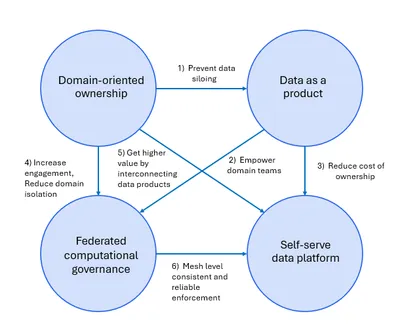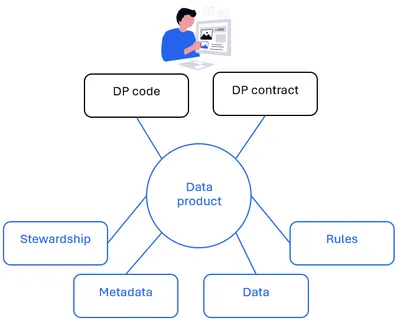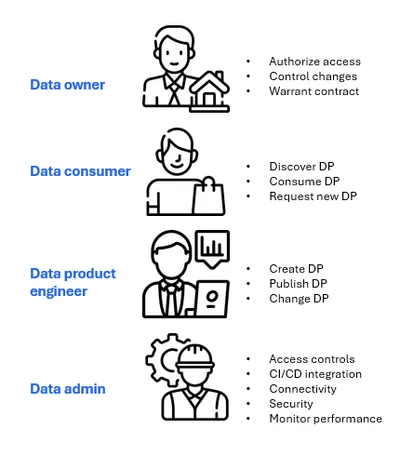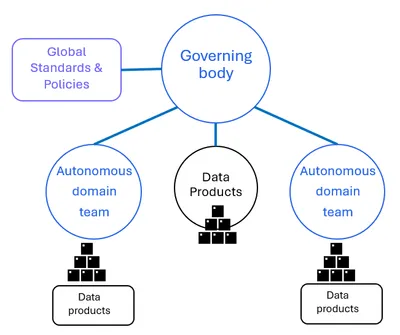Data Mesh
Empowers business domains with their own data products.
How Yavantha supports data mesh architecture ?

Domain-driven ownership of data
Share trusted data across domains.
- Data products are created by data experts in the domains in which the data is produced
- Data is externalized via data products through any combination of: APIs, MCP, SQL
- Data products are discoverable and accessible by authorized data consumers
- Centralizing multi-domain master data for cross-company consumption

Data-as-a-product approach
Package data with everything needed to increase usage and trust.
- The metadata includes the data product schema, its access controls, governance policies, SLAs, and more
- The business logic for ingesting, cleansing, transforming, enriching, synthesizing, and delivering data is translated to code
- The platform executes the data product, based on its metadata and code

Self-serve data platform
Empower domain teams by abstracting complexity.
- A semantic data layer, together with no-code tooling, enable data product engineers to quickly and autonomously create and share data products
- A data product catalog enables data users in the domains to discover and consume data products based on their roles and privileges
- Admins monitor data product performance and usage, integrate with CI/CD platforms, set access controls, and more

Federated governance
Embed data quality and privacy policies into data products.
- Global data governance is implemented in the data mesh hub
- Data domains implement global data governance policies in their respective data products
- Data domains employ domain-specific data governance as required